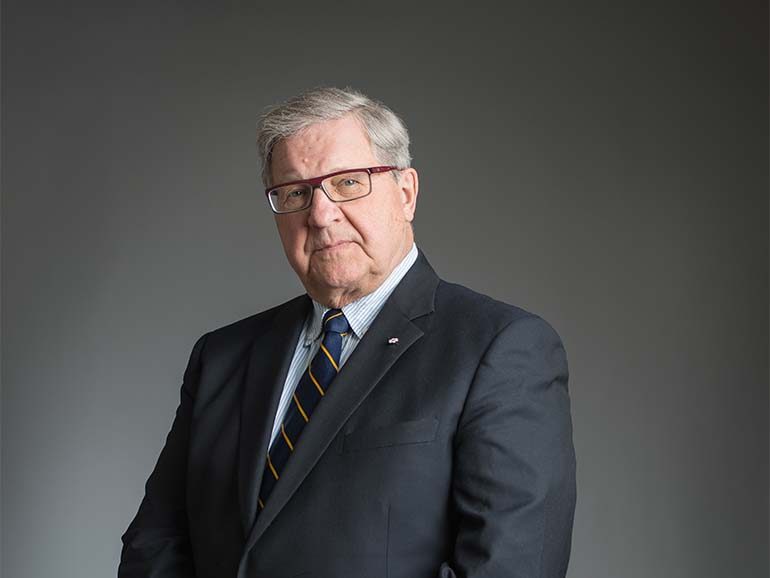For most of the past eight decades after the WW II, Austria has remained a good intermediary between the East and the West in the International Affairs. Its geographical location in the center of Europe; its historic, cultural heritage, position of neutrality in global security and political affairs and its respectable espousal of disarmament and humanitarian positions in the global arena have enabled it well to be a bridge-builder in the International relations.
Nestled in the Alps, peaceful, prosperous and highly cultured Austria has remained a good model of a responsible democracy through the latter half of the twentieth century. Pope Paul VI called Austria “an island of the fortunate” (“Insel Der Glucklichen”) in 1971. Its reputation has been that of a stable democracy that contributes towards international peace and reconciliation. Its earlier occupation by the Nazis under Adolf Hitler made it ‘the first among the victims’ of the Euro-Fascism after its Anschluss with Germany in 1938. It has always successfully defended its position during the age of the Nazi atrocities by correctly pointing out its difficult plight and situation during the occupation years. An advocate of peace and reconciliation is what best describes Austria’s role in the International system since the end of the WWII.
This role of peace maker and a good go-between among the nations of the world was enhanced when Austria joined the EU in 1995. It, however, also became a more complex enterprise for the country as Austria now had to surrender some of its foreign policy sovereignty to a supranational body of a European and global stature whose foreign policy positions would not always be shared by Austria. For decades, this kind of surrender has rankled with the rightest opinion in Austria. The EU also demanded a say in the country’s domestic policies. This became most evident in 1999 when the far right Freedom Party of Austria, the FPO won 26.9% of the vote under its controversial leader, Jorge Haider, to become the second most popular party of the country. When the Austrian People’s Party, the OVP, formed a coalition government with the FPO in February 2000, Wolfgang Shussel of the OVP became the Chancellor of the country. Susanne Reiss-Passer of the FPO became the Vice Chancellor of the country. The far right party FPO and its controversial head, Jorge Haider, seemed to have disturbing Neo-Nazi proclivities. The EU countries did not approve of this coalition government. Earlier, in January 2000, fourteen EU countries had threatened to sanction Austria, in case the OVP formed a coalition government with the FPO. They did that after the coalition government was formed on February 4, 2000. Earlier, Austria had experienced a similar international censor during the Kurt Waldheim presidency (1986-92) for Waldheim’s pro-Wehrmacht pronouncements and positions. The EU sanctions were, however, lifted soon.
Through the first quarter of the twenty-first century, Austria has successfully negotiated its historical tradition of neutrality in foreign policy with its EU obligations. Even though it did not quite measure up to the expectations of the European Union in its contribution towards the enlargement of the Union in the former communist countries in the Eastern Europe, Austria’s efforts towards promotion of democracy in the former Warsaw Pact countries cannot be underestimated. It has often played a supportive role in encouraging the transition of the former communist Eastern European countries such as Hungary, the Czech Republic and Slovakia towards a more democratic and open path.
Austria has been a significant contributor towards the efforts of the global multilateral organizations such as the United Nations (UN) and the International Atomic Energy Agency (IAEA). It hosts one of the four major offices of the UN in Vienna. The headquarters of the IAEA too are based in Vienna. The headquarters of the Organization of the Petroleum Exporting Countries (OPEC) are also located in Vienna.
The diverse crises of the first quarter of the twenty-first century have challenged the Austrian foreign policy in a number of ways. The global economic crisis of the 20007-8, the Corona epidemic breakout in 2019-20 and the eruption of the Russia-Ukraine War in 2022 have all tested the Austrian foreign policy. Austria has maintained a principled position, well in keeping with its historic traditions and in harmony with the EU values and international norms, through all of these crises. Over decades, Austria’s conduct and posture of peace promotion, support for reconciliation and contributions towards disarmament have endeared it to most of the International Community.
